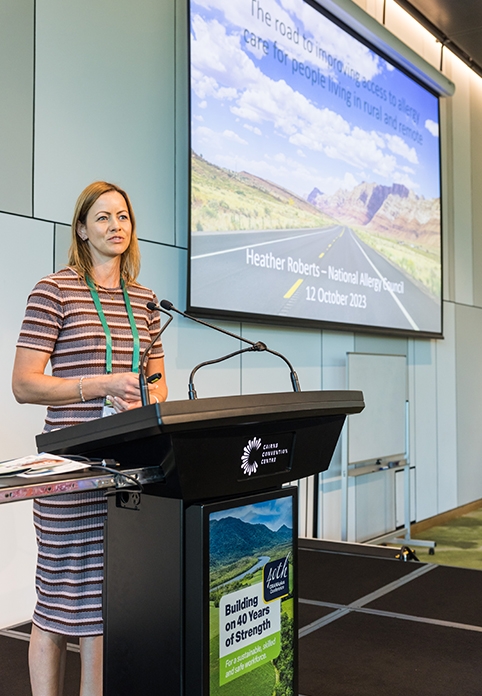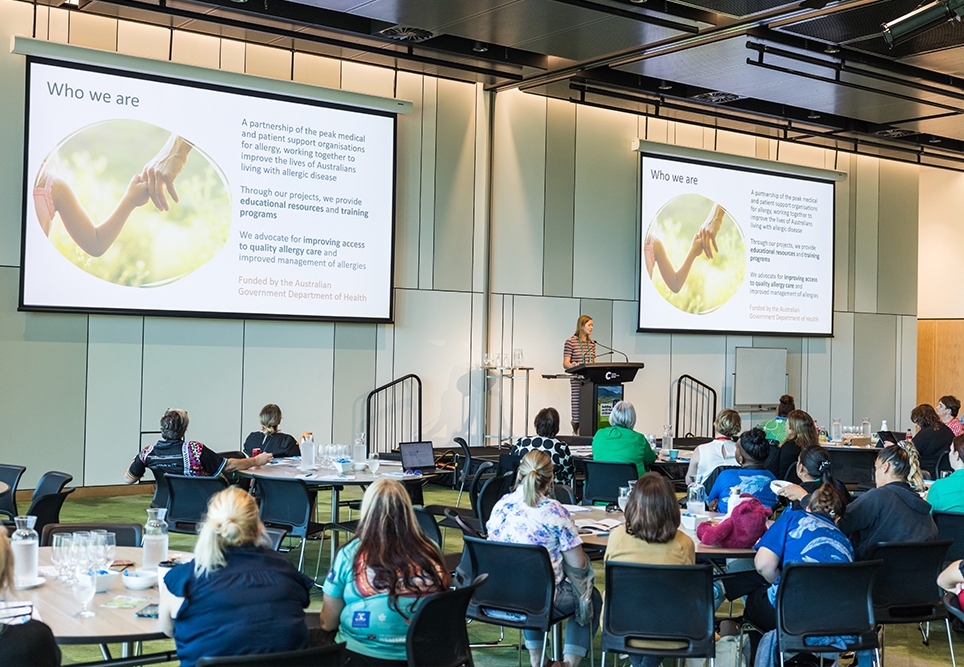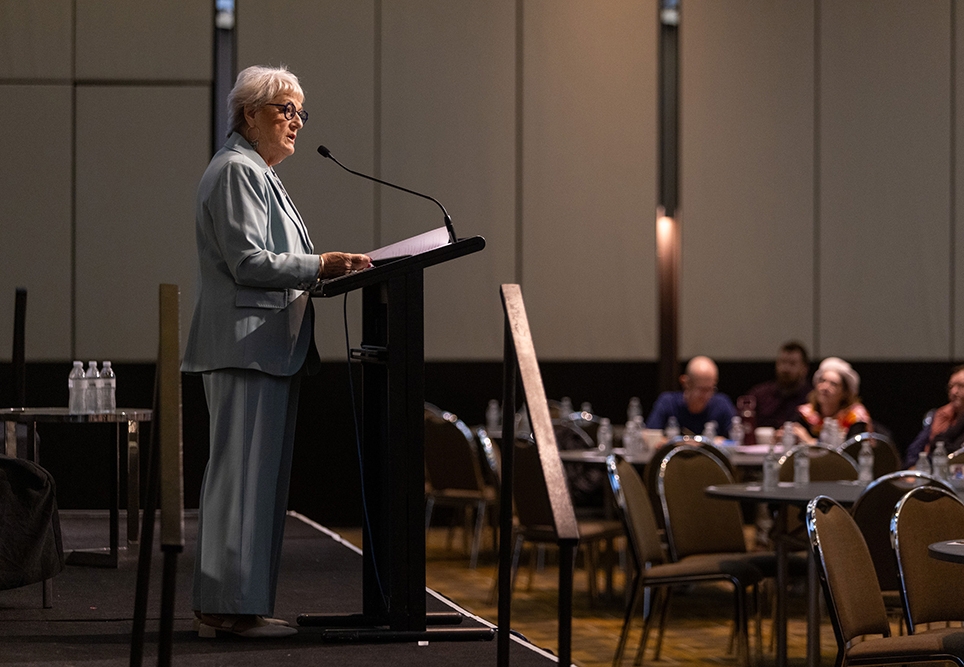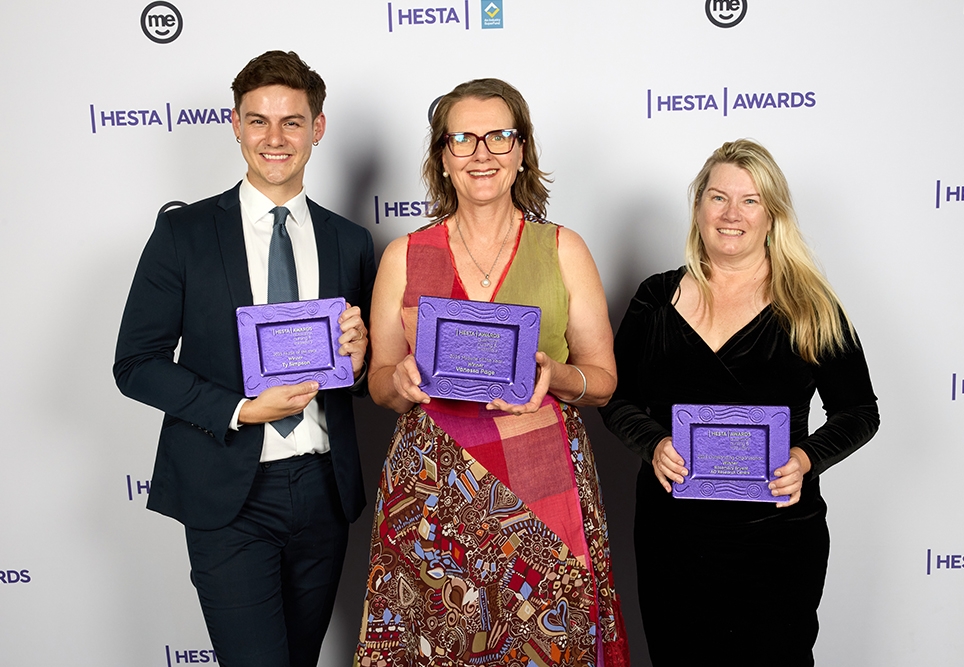
One in five Australians have an allergy, one in ten babies have a food allergy – and allergies are on the rise.
“But there is a shortage of specialists in this field, creating incredibly long waiting periods to get attention in public hospitals, and bottlenecks for people to get a proper diagnosis,” Heather says.
“In addition, there is a fair amount of misinformation surrounding the issue of allergies in general, which confuses people.”
The range of allergies and the range of symptoms and effects, means some people may not take allergies as seriously as they should, Heather says.
“That’s why we need well-educated health professionals in the community.”
Important resources available to health professionals include manuals and evidence-based resources to give guidance, and online opportunities to undertake education and training through the Australasian Society of Clinical Immunology and Allergy (ASCIA).
Heather, who has worked for the past fifteen years on projects to improve healthcare services in Australia, is managing the national Shared Care for Allergy project which aims to improve access to allergy care, particularly for people living in rural and remote areas. The right care has a positive effect on people’s lives, she says.
“In the first instance, the health professional needs to know if it is an allergy or something else, and then what to do next,” Heather says, “[so] correct diagnosis and management of allergies is very important.
“Of course, avoiding the cause of an allergy is crucial, but not always easy. For a food allergy, for example, it’s important to know how to read product labels. Getting the right education and support around that time is important. Dietitians, particularly those with additional training in allergies, can be very helpful.
“Parents need guidance too, to help their children and manage their allergies while they’re younger, and help their children learn how to manage their allergies as they get older and become more independent, particularly if it is a severe food allergy.
“Other allergies can be caused by certain materials, such as latex, and knowledge is needed to deal with conditions such as eczema and allergic rhinitis which can have a significant impact on day-to-day living.”

Heather, who is working on the project under the leadership of a paediatric allergy specialist from ASCIA and head of a national support organisation for people with allergies (Allergy & Anaphylaxis Australia), is consulting with a wide range of stakeholders, such as people with allergies, parents of children affected by allergies, health professionals caring for these people and clinical immunology/allergy specialists.
“We want to make sure that people across the board, in cities and in rural and remote areas, get the best care possible, so they can manage their allergy and live well,” says Heather.
“It’s generally a lifelong situation for most people, and it’s important to learn to manage it.
“The focus on rural and remote areas is because it is acknowledged that the shortage of professional health workers in general is a problem. Other barriers to good care [include] distance and long travel times to get to the cities.”
Heather says that the Shared Care for Allergy project is also looking at various options to cope with the shortage such as a point of contact that health professionals can tap into to access the available knowledge base, and the potential for outreach allergy clinics, where teams can go out and conduct clinics, perhaps with local health professionals learning ways to take care of their patients on the job.




